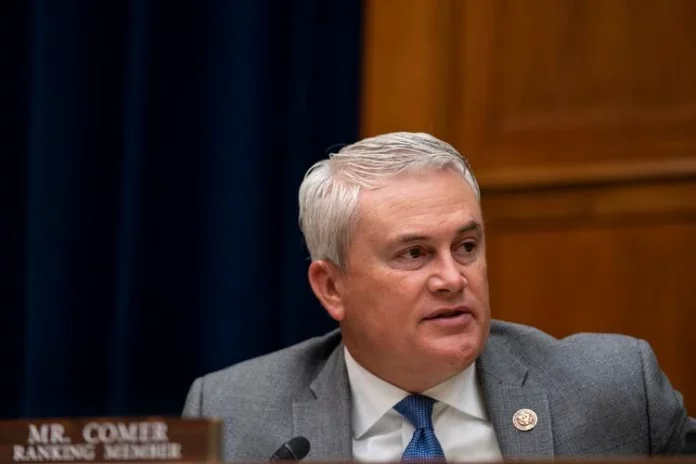The Federal Employees Health Benefits program may be spending almost $1 billion a year on payments for ineligible members, according to a U.S. Government Accountability Office report.
The report has some federal lawmakers calling for more information and changes to prevent fraud and waste.
“This is a flagrant waste of funds and may be driving up premium costs for eligible participants,” House Committee on Oversight and Accountability Chairman James Comer, R-Kentucky, wrote in a letter to the Office of Personnel Management.
About 8 million federal employees and their families get health insurance benefits through the Federal Employees Health Benefits program. In 2021, the Office of Personnel Management began requiring some new program enrollees to verify that their family members were eligible. However, the Office of Personnel Management doesn’t have a process to identify and remove ineligible family members already enrolled.
“The program may be spending almost $1 billion per year on payments for ineligible members,” according to the GAO report.
The report recommended the Office of Personnel Management take steps to remove ineligible family members and assess fraud risks associated with ineligible program members. It highlighted some cases. For example, a federal employee fraudulently covered two people said to be his wife and stepchild in the FEHB program. Both were ineligible, but remained on FEHB health insurance for 12 years. The program paid claims worth more than $100,000 on behalf of two ineligible people, according to the report.
The FEHB, which is the largest employer-sponsored healthcare program in the country, provides health insurance benefits to more than 8 million federal employees, family members, and others. The program cost about $59 billion in fiscal year 2021. Until 2021, employing offices were not required to review eligibility documentation to verify family member eligibility, according to the GAO report.
“This left the program vulnerable to fraud and improper payments associated with ineligible family members,” the report noted.
Comer called on the U.S. Office of Personnel Management to provide documents and communications and a briefing on the matter.
“GAO’s report suggests OPM has been aware of this problem for years but has consistently failed to address it effectively. […] To this day, according to GAO, ‘OPM does not plan to establish a monitoring mechanism to identify and remove ineligible family members who already have FEHB coverage.’ Making matters worse, GAO determined OPM’s annual fraud risk assessment of the FEHB program fails to cover ‘fraud risks associated with ineligible members in the program,” Comer said in a statement.
Republished with the permission of The Center Square.














